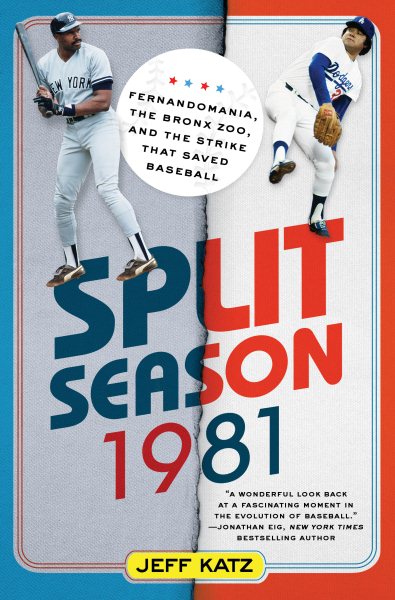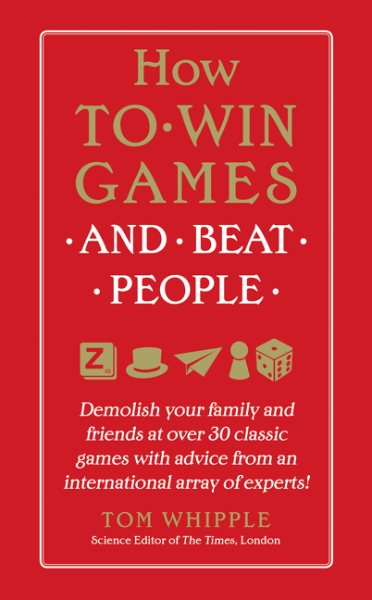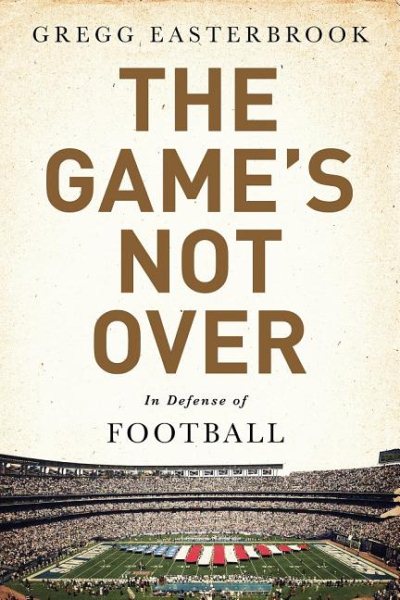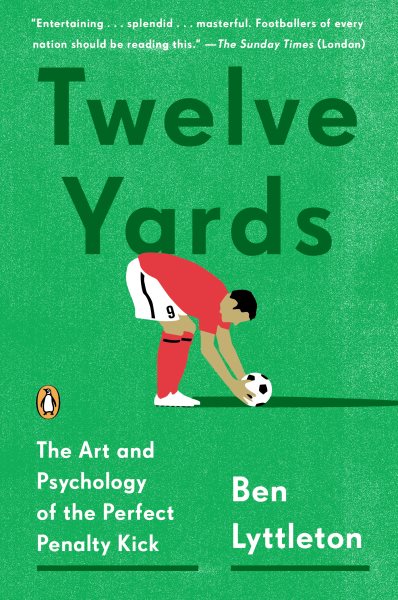Driven in large part by the popularity of the NHL’s Winter Classic,
outdoor hockey is enjoying an unprecedented revival. For a sport that
began under the open sky, a backyard rink allows for a return to the
origins of the game and can provide a memorable neighborhood gathering
place and a place for players to train without the expense of indoor ice
rental.In Backyard Ice Rink, blogger and professional rink builder Joe
Proulx guides you through every step of building your own backyard ice
skating rink. From the simplest wooden frame to elaborate tall-board
rinks, from measuring the slope in your yard to constructing your frame
using parts found at your local hardware store, Proulx makes the project
easy to tackle. In addition to the four easy-to-follow photo-intensive
rink plans, Proulx also covers ice maintenance, building your own bench
and goals, teardown, and storage through the summer months.
Check Catalog
Sports
You can click the links to check availability.
Monday, February 29, 2016
Monday, February 22, 2016
Split Season: 1981: Fernandomania, the Bronx Zoo, and the Strike That Saved Baseball
The never-before-told story of the momentous season torn in half by the bitter players strike.
1981 was a watershed moment in American sports, when players turned an oligarchy of owners into a game where they had a real voice. Midway through the season, a game-changing strike ripped baseball apart, the first time a season had ever been stopped in the middle because of a strike. Marvin Miller and the MLB Players Association squared off against Baseball Commissioner Bowie Kuhn and the owners in a fight to protect players rights to free agency and defend America's pastime.
Though a time bomb was ticking as the 1981 season began, the game rose to impressive---and now legendary---heights. Pete Rose chased Stan Musial's National League hit record and rookie Fernando Valenzuela was creating a sensation as the best pitcher in the majors when the stadiums went dark and the players went on strike.
For the first time in modern history, there were first- and second-half champions; the two teams with the overall best records in the National League were not awarded play-off berths. When the season resumed after an absence of 712 games, Rose's resumption of his pursuit, the resurgence of Reggie Jackson, the rise of the Montreal Expos, and a Nolan Ryan no-hitter became notable events. The Dodgers bested their longtime rivals in a Yankees-Dodgers World Series, the last classic matchup of those storied opponents.
Sourcing incredible and extensive interviews with almost all of the major participants in the strike,Split Season: 1981 returns us to the on- and off-field drama of an unforgettable baseball year.
Check Catalog
1981 was a watershed moment in American sports, when players turned an oligarchy of owners into a game where they had a real voice. Midway through the season, a game-changing strike ripped baseball apart, the first time a season had ever been stopped in the middle because of a strike. Marvin Miller and the MLB Players Association squared off against Baseball Commissioner Bowie Kuhn and the owners in a fight to protect players rights to free agency and defend America's pastime.
Though a time bomb was ticking as the 1981 season began, the game rose to impressive---and now legendary---heights. Pete Rose chased Stan Musial's National League hit record and rookie Fernando Valenzuela was creating a sensation as the best pitcher in the majors when the stadiums went dark and the players went on strike.
For the first time in modern history, there were first- and second-half champions; the two teams with the overall best records in the National League were not awarded play-off berths. When the season resumed after an absence of 712 games, Rose's resumption of his pursuit, the resurgence of Reggie Jackson, the rise of the Montreal Expos, and a Nolan Ryan no-hitter became notable events. The Dodgers bested their longtime rivals in a Yankees-Dodgers World Series, the last classic matchup of those storied opponents.
Sourcing incredible and extensive interviews with almost all of the major participants in the strike,Split Season: 1981 returns us to the on- and off-field drama of an unforgettable baseball year.
Check Catalog
Wednesday, February 17, 2016
How to Win Games and Beat People
Destroy the competition on game night with this seriously funny guide
packed with handy strategy, tricks, and tips from the experts
Games are way more fun to play when you win—especially when you crush your friends and family! In How to Win Games and Beat People, Times science editor Tom Whipple explores inside tips, strategy, and advice from a ridiculously overqualified array of experts that will help you dominate the competition when playing a wide range of classic games—from Hangman to Risk to Trivial Pursuit and more.
A mathematician explains how to approach Connect 4; a racecar driver guides you through the corners in slot car racing; a mime shares trade secrets for performing the best Charades; a Scrabble champion reveals his secret strategies; and a game theorist teaches you to become a real estate magnate, recommending the Monopoly properties to acquire that will bankrupt and embarrass your opponents (sorry, Mom and Dad).
Funny, smart, and endlessly useful, this is a must-read for anyone who takes games too seriously, and the bible for sore losers everywhere.
Check Catalog
Games are way more fun to play when you win—especially when you crush your friends and family! In How to Win Games and Beat People, Times science editor Tom Whipple explores inside tips, strategy, and advice from a ridiculously overqualified array of experts that will help you dominate the competition when playing a wide range of classic games—from Hangman to Risk to Trivial Pursuit and more.
A mathematician explains how to approach Connect 4; a racecar driver guides you through the corners in slot car racing; a mime shares trade secrets for performing the best Charades; a Scrabble champion reveals his secret strategies; and a game theorist teaches you to become a real estate magnate, recommending the Monopoly properties to acquire that will bankrupt and embarrass your opponents (sorry, Mom and Dad).
Funny, smart, and endlessly useful, this is a must-read for anyone who takes games too seriously, and the bible for sore losers everywhere.
Check Catalog
Monday, February 8, 2016
The Game's Not Over: In Defense of Football
On November 17, 1968, the Oakland Raiders staged a last-minute comeback
against the New York Jets, scoring two touchdowns in the final minute
for a dramatic finale. But there was a problem: no one saw it. NBC,
broadcasting the game nationally, cut away
with 1:01 remaining and the Jets still leading to air a previously
scheduled movie,Heidi. The ensuing public outcry was so significant that the rules for football broadcasting were quickly and forever changed.
In this perceptive, finely argued book, Gregg Easterbrook shows that the so-called "Heidi Bowl" was not just an isolated bizarre moment. It was the beginning of the football era in America. The sport boomed alongside television, soon becoming our national campfire--one of the few points of agreement across the political spectrum and a genuine source of community even as religion's influence waned. It is no coincidence, Easterbrook argues, that we now see in football the same issues that we perceive elsewhere in America--including recent problems with bullying, violence against women, racial injustice, and financial skulduggery.
These problems are significant, and many have been moved to limit their engagement with the NFL's venal culture--or boycott it entirely. Yet as Easterbrook shows, there's something here worth saving. He expounds on the benefits of football, and throws its many problems into relief, finally arguing that the work of reforming and changing one of our great pastimes is American as the game itself.
Check Catalog
In this perceptive, finely argued book, Gregg Easterbrook shows that the so-called "Heidi Bowl" was not just an isolated bizarre moment. It was the beginning of the football era in America. The sport boomed alongside television, soon becoming our national campfire--one of the few points of agreement across the political spectrum and a genuine source of community even as religion's influence waned. It is no coincidence, Easterbrook argues, that we now see in football the same issues that we perceive elsewhere in America--including recent problems with bullying, violence against women, racial injustice, and financial skulduggery.
These problems are significant, and many have been moved to limit their engagement with the NFL's venal culture--or boycott it entirely. Yet as Easterbrook shows, there's something here worth saving. He expounds on the benefits of football, and throws its many problems into relief, finally arguing that the work of reforming and changing one of our great pastimes is American as the game itself.
Check Catalog
Monday, February 1, 2016
Twelve Yards: The Art and Psychology of the Perfect Penalty Kick
An all-encompassing look at the penalty kick, soccer’s all-or-nothing play—its legendary moments and the secrets to its success
No stretch of grass has been the site of more glory or heartbreak in the world of sports than the few dozen paces between goalkeeper and penalty kicker in soccer. In theory, it’s simple: place the ball beyond a single defender and secure a place in history. But once the chosen players make the lonely march from their respective sides of the pitch, everything changes, all bets are off, and anything can happen. Drawing from the hardwon lessons of legendary games, in-depth statistical analysis, expert opinion, and the firsthand experience of coaches and players from around the world, journalist Ben Lyttleton offers insight into the diverse attitudes, tactics, and techniques that separate success from failure in one of the highest-pressure situations sports has to offer.
Check Catalog
No stretch of grass has been the site of more glory or heartbreak in the world of sports than the few dozen paces between goalkeeper and penalty kicker in soccer. In theory, it’s simple: place the ball beyond a single defender and secure a place in history. But once the chosen players make the lonely march from their respective sides of the pitch, everything changes, all bets are off, and anything can happen. Drawing from the hardwon lessons of legendary games, in-depth statistical analysis, expert opinion, and the firsthand experience of coaches and players from around the world, journalist Ben Lyttleton offers insight into the diverse attitudes, tactics, and techniques that separate success from failure in one of the highest-pressure situations sports has to offer.
Check Catalog
Subscribe to:
Posts (Atom)





